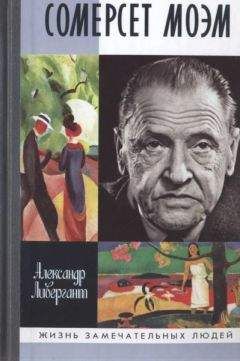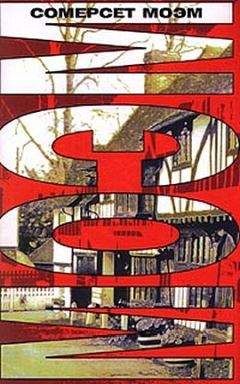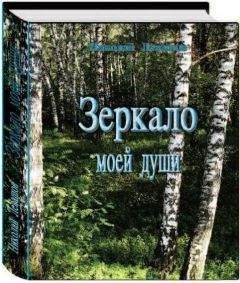Уильям Моэм - Мистер Всезнайка. Рассказы
association [q" squsI'eIS(q)n, q" squSI'eIS(q)n], disturb [dIs'tWb], existence [Ig'zIst(q)ns]
"Oh, well, when I settled down here I was naturally interested, and I have plenty of time for reading. When you live in a place like this, with all its associations, it seems to make history so actual. You might almost be living in historical times yourself."
I should remark here that this was in 1913. The world was an easy, comfortable place and no one could have imagined that anything might happen seriously to disturb the serenity of existence.
"How long have you been here (как долго вы здесь живете)?" I asked.
"Fifteen years (пятнадцать лет)." He gave the blue and placid sea a glance (он взглянул на синее спокойное море), and a strangely tender smile hovered on his thin lips (и удивительно нежная улыбка тронула его тонкие губы; strange — незнакомый; необычный, удивительный; to hover — парить/оптице/;колебаться, мешкать). "I fell in love with the place at first sight (я влюбился в это место с первого взгляда; to fall — падать; to fall in/to/ a state — приходить, впадатьвкакое-либосостояние; sight — зрение; первыйвзгляд). You’ve heard, I dare say, of the mythical German (вы знаете, полагаю, о том мифическом немце; to hear — слышать, услышать; услышать, узнать; mythical — мифический; фантастический, вымышленный) who came here on the Naples boat just for lunch and a look at the Blue Grotto (который приехал сюда на лодке из Неаполя, чтобы пообедать и взглянуть на Голубой грот; lunch — ленч, второйзавтракилиобед/всерединедняс12до14часов/) and stayed forty years (и остался на сорок лет); well, I can’t say I exactly did that (что ж, не могу сказать, что я поступил именно так; to do — делать, производитьдействие; поступать), but it’s come to the same thing in the end (но в конце концов, все свелось к тому же; to come — приходить, идти; сводиться/кчему-либо/; the same thing — тожесамое). Only it won’t be forty years in my case (только в моем случае сорока лет не будет). Twenty-five (двадцать пять). Still, that’s better than a poke in the eye with a sharp stick (все же это лучше, чем ничего: «чем тычок острой палкой в глаз»)."
placid ['plxsId], mythical ['mITIk(q)l], Naples ['neIp(q)lz], grotto ['grOtqu]
"How long have you been here?" I asked.
"Fifteen years." He gave the blue and placid sea a glance, and a strangely tender smile hovered on his thin lips. "I fell in love with the place at first sight. You’ve heard, I dare say, of the mythical German who came here on the Naples boat just for lunch and a look at the Blue Grotto and stayed forty years; well, I can’t say I exactly did that, but it’s come to the same thing in the end. Only it won’t be forty years in my case. Twenty-five. Still, that’s better than a poke in the eye with a sharp stick."
I waited for him to go on (я ждал, что он продолжит; to go on — идтидальше; продолжать). For what he had just said looked indeed as though (потому как то, что он только что сказал, на самом деле было похоже; to look /as though/ —смотреть, глядеть; бытьпохожим, напоминать) there might be something after all in the singular story I had heard (что в конце концов, было нечто в той необычной истории, о которой я был наслышан). But at that moment my friend came dripping out of the water (но в этот момент мой друг вылез из воды, весь мокрый, to come out — появляться; приходить; to drip — капать, стекать; dripping — капающий; мокрый, промокший) very proud of himself because he had swum a mile (весьма гордый собой оттого, что проплыл милю; to swim), and the conversation turned to other things (и разговор перешел на другие темы: «к другим вещам»; to turn — поворачивать; менять/тему/,переходить/оразговоре/; thing — вещь, предмет; вещь, явление).
singular ['sINgjulq], conversation ["kOnvq'seIS(q)n]
I waited for him to go on. For what he had just said looked indeed as though there might be something after all in the singular story I had heard. But at that moment my friend came dripping out of the water very proud of himself because he had swum a mile, and the conversation turned to other things.
After that I met Wilson several times (после этого я несколько раз встречался с Уилсоном), either in the Piazza or on the beach (то на пьяцце, то на пляже). He was amiable and polite (он был дружелюбен и вежлив). He was always pleased to have a talk (он всегда был рад поговорить; pleased — довольный; talk — разговор, беседа) and I found out that he not only knew every inch of the island (и я выяснил, что он не только знает каждый дюйм этого острова) but also the adjacent mainland (но так же и близлежащий материк; adjacent — прилегающий, расположенныйрядом, смежный). He had read a great deal on all sorts of subjects (он много читал о самых разных предметах: «о всякого рода предметах»; deal — некотороеколичество), but his speciality was the history of Rome (но особенно его интересовала: «его специализацией была» история Рима; speciality — специальность) and on this he was very well informed (и об этом он был очень хорошо осведомлен). He seemed to have little imagination (казалось, что у него небогатое воображение = воображение у него, видимо, было небогатым; little— немного, небольшое количество) and to be of no more than average intelligence (и способности у него не более чем средние; intelligence— ум, интеллект, умственные способности).
amiable ['eImIqb(q)l], adjacent [q'dZeIs(q)nt], average ['xv(q)rIdZ]
After that I met Wilson several times, either in the Piazza or on the beach. He was amiable and polite. He was always pleased to have a talk and I found out that he not only knew every inch of the island but also the adjacent mainland. He had read a great deal on all sorts of subjects, but his speciality was the history of Rome and on this he was very well informed. He seemed to have little imagination and to be of no more than average intelligence.
He laughed a good deal, but with restraint (он много смеялся, но сдержанно; restraint — сдержанность), and his sense of humour was tickled by simple jokes (и его чувство юмора удовлетворялось простыми шутками; to tickle — щекотать, раздражать; доставлятьудовольствие, угождать). A commonplace man (невыразительный человек; commonplace— банальный, избитый; серый, неинтересный /о человеке/). I did not forget the odd remark (я не забыл того странного замечания; odd— нечетный; странный, необычный) he had made during the first short dial we had had by ourselves (которое он сделал во время нашего первого короткого разговора наедине; byourselves— без посторонней помощи, самостоятельно; одни, в одиночестве), but he never so much as approached the topic again (но он даже не приближался к этой теме снова). One day on our return from the beach, dismissing the cab at the Piazza (однажды, по нашему возвращению с пляжа, отпуская кеб у пьяццы; cab— такси; кеб, наемный экипаж, извозчик), my friend and I told the driver to be ready to take us up to Anacapri at five (мы с моим другом сказали извозчику быть готовым отвезти нас в Анакапри в пять часов; driver— водитель, шофер; извозчик, кучер;totakeup— поднимать; подвозить, отвозить).
laugh [lQ: f], restraint [rI'streInt], commonplace ['kOmqnpleIs]
He laughed a good deal, but with restraint, and his sense of humour was tickled by simple jokes. A commonplace man. I did not forget the odd remark he had made during the first short dial we had had by ourselves, but he never so much as approached the topic again. One day on our return from the beach, dismissing the cab at the Piazza, my friend and I told the driver to be ready to take us up to Anacapri at five.
We were going to climb Monte Solaro (мы собирались подняться на /гору/ Монте-Соларо; to climb — карабкаться; взбираться;подниматься), dine at a tavern we favoured (пообедать в понравившейся нам таверне: «в таверне, которой мы отдавали предпочтение»; to favour — благоволить; оказыватьпредпочтение, проявлятьпристрастие), and walk down in the moonlight (и спуститься вниз пешком при лунном свете), for it was full moon and the views by night were lovely (потому как была полная луна = былополнолуние, и ночью пейзаж был прекрасен). Wilson was standing by while we gave the cabman instructions (Уилсон стоял рядом, пока мы давали извозчику указания; instruction — обучение, преподавание; инструкции, указания, приказания), for we had given him a lift to save him the hot dusty walk (потому как мы подвезли его, чтобы избавить его от необходимости идти пешком по жаре и пыли; to save — спасать, уберегать; hot — горячий, жаркий; dust — пыль; dusty — пыльный), and more from politeness than for any other reason (и больше из вежливости, чем по какой-либо другой причине) I asked him if he would care to join us (я спросил его, не хочет ли он присоединиться к нам; to care — заботиться, ухаживать; иметьжелание, хотеть; to join — соединять, связывать; присоединяться, входитьвкомпанию).
"It’s my party (это я устраиваю вечер; party— отряд, команда; прием гостей, вечер, пикник)," I said.
"I’ll come with pleasure (я пойду с удовольствием)," he answered (ответил он).
climb [klaIm], tavern ['txvqn], view [vju: ], pleasure ['pleZq]
We were going to climb Monte Solaro, dine at a tavern we favoured, and walk down in the moonlight, for it was full moon and the views by night were lovely. Wilson was standing by while we gave the cabman instructions, for we had given him a lift to save him the hot dusty walk, and more from politeness than for any other reason I asked him if he would care to join us.
"It’s my party," I said.
"I’ll come with pleasure," he answered.
But when the time came to set out (но когда пришло время отправиться /в путь/; tosetout— помещать, выставлять /наружу, за дверь/; отправляться в путешествие, выходить) my friend was not feeling well (мой друг почувствовал себя нехорошо: «не чувствовал себя хорошо»), he thought he had slaved too long in the water (он думал, что он перекупался: «он слишком долго работал = плавал до изнеможения в воде»; toslave— работать до изнеможения, надрываться), and would not face the long and tiring walk (и не выдержит долгой и утомительной прогулки; toface— находиться лицом к; смело встречать /что-либо/, без страха смотреть в лицо /чему-либо/;totire— утомлять). So I went alone with Wilson (поэтому я пошел вместе: «наедине» с Уилсоном). We climbed the mountain, admired the spacious view (мы поднялись на гору, восхитились/полюбовались великолепным видом; spacious— обширный; роскошный), and got back to the inn as night was falling, hot, hungry, and thirsty (и, когда уже наступала ночь, вернулись назад в гостиницу — разгоряченные, голодные и испытывающие жажду; tofall— падать; наступать, опускаться). We had ordered our dinner beforehand (мы заказали обед = ужин заранее). The food was good, for Antonio was an excellent cook (еда была хорошая, потому что Антонио был отличным поваром), and the wine came from his own vineyard (и вино было из его собственного виноградника; to come — приходить, идти; происходить, иметьпроисхождение). It was so light that you felt you could drink it like water (оно было настолько легким, что казалось, что его можно пить, как воду: «что ты чувствовал, что мог бы пить его как воду»; light— легкий, нетяжелый; легкий, некрепкий /о вине, пиве/) and we finished the first bottle with our macaroni (и мы прикончили первую бутылку с нашими макаронами).




